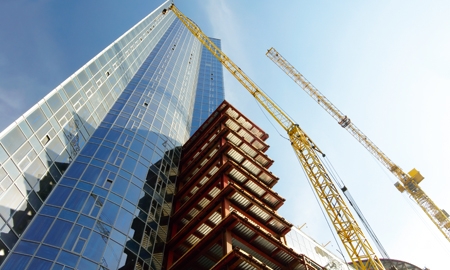Despite living in one of the wealthiest countries in Africa, affordable housing is still beyond the reach of some low-income and even middle-income earners in Algeria. It is a pressing problem for the government, and one it is seeking to address with a national housing programme that aims to build 2.4 million homes by 2017.
However, much progress has been made: more than 2 million homes have been constructed during the past decade, and thousands of families have been relocated to better accommodation. Citizens whose monthly income is less than 24,000 dinars (about £197) are entitled to free, state-provided homes.
The Ministry of Housing will be represented at the fair celebrating the nation’s 50th anniversary celebrations, which runs from July 5-20 in Algiers. A special documentary and magazine have been produced describing how the sector has moved forward during the past five decades, and the Ministry will conduct seminars on new housing techniques at various locations over the coming year.
Noureddine Moussa, Minister of Housing and Urban Development, is confident the current shortfall of 1.2 million housing units will be met by 2014, with 674,000 homes of all types to be delivered this year, to be followed by a further 265,000 units in each of the coming two years.
The budget we are devoting to housing and urban development is huge – the equivalent of $60 billion over five years. Noureddine Moussa,
Minister of Housing and
Urban Development |
“The budget we are devoting to housing and urban development is huge – the equivalent of $60 billion (£38.5 billion) over five years. We also have a substantial programme to upgrade sustainable infrastructure in cities. This operation has cost us something like $5 billion over five years, and for the next phase of the programme we are looking at something like $4 billion.”
Demand for social and subsidised housing in Algeria has risen with the size of the population and an exodus from the rural areas to the cities. The public housing schemes introduced since President Abdelaziz Bouteflika came to power in 1999 followed decades of under investment.
“After 15 years with almost no building activity there was a huge shortage to address,” says Mr Moussa. In addition to building new homes the government is spending money on rehabilitating and renovating old buildings, particularly in Algiers.
“Some of the buildings are in a dismal state, and we have had to allocate a lot of money to their rehabilitation,” says the Minister. “In Oran, for example, we got to work on virtually the entire city centre. These are very large-scale programmes that cost the state a lot of money.”
Thousands of housing units have been built by the state-owned housing firm Cosider, and foreign companies have also been supporting the housing drive through joint ventures and technology transfer.
“Turnkey projects address the problems at hand, but they do not have much of a wider beneficial effect on the economy and society,” says Mr Moussa. “Therefore we have opted for partnerships with consulting firms and manufacturers of building materials, such as scaffolding equipment, etc, that can work in unison with Algerian companies.
“Our ambition is to proactively improve our research and know-how by working with those who have the skills and are willing to work with us. We are currently working with Italian companies to develop new structural designs, following our previous experiences of working with Spanish and Chinese companies.
“There are a lot of new building materials seamlessly entering the Algerian market, and we are introducing new ways of building quickly and efficiently to meet demand.”
The Minister points out that in addition to improving the lives of citizens, the government’s home-building programmes have other benefits in terms of the creation of jobs and contribution to GDP.
“Housing has a social dimension that has the potential to improve the lives of our citizens. But there is also an economic dimension, because when we see trucks all over the place, servicing the needs of the housing market, this has created a lot of synergy and stimulation in the economy,” he says.
“Experts say that a housing project creates an additional 1.5 to two jobs for every worker directly employed during the construction period. So if a programme is creating 2 million homes the sector is employing a lot of people.”

0 COMMENTS